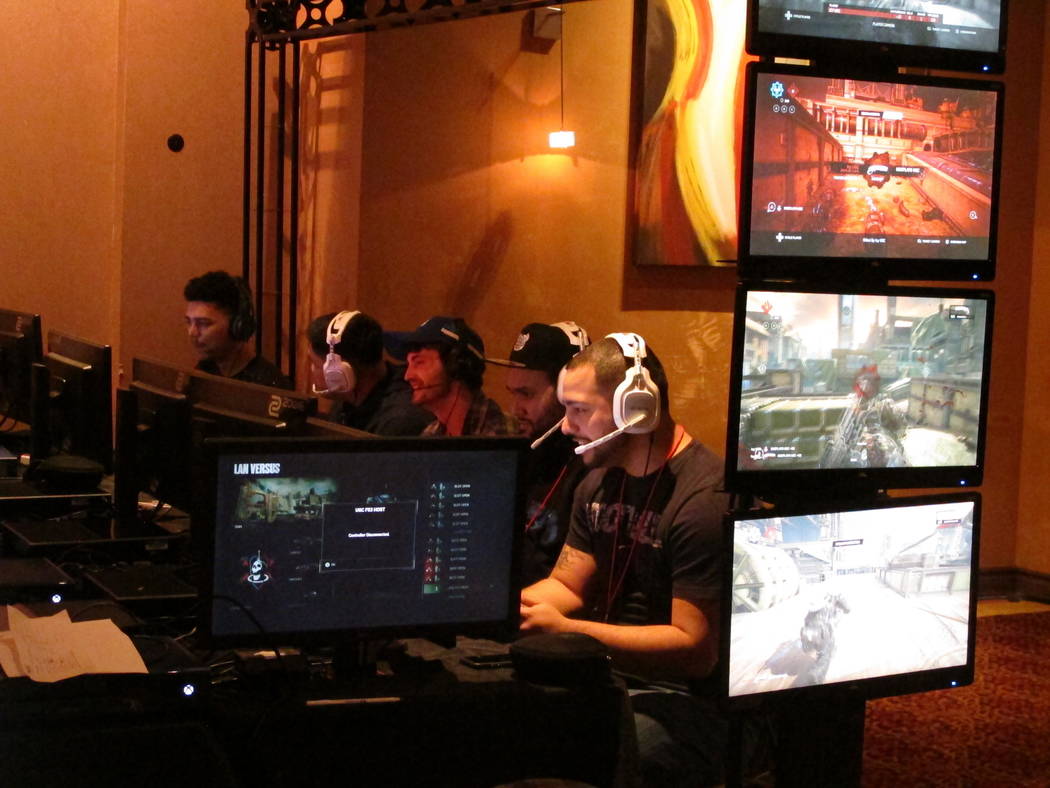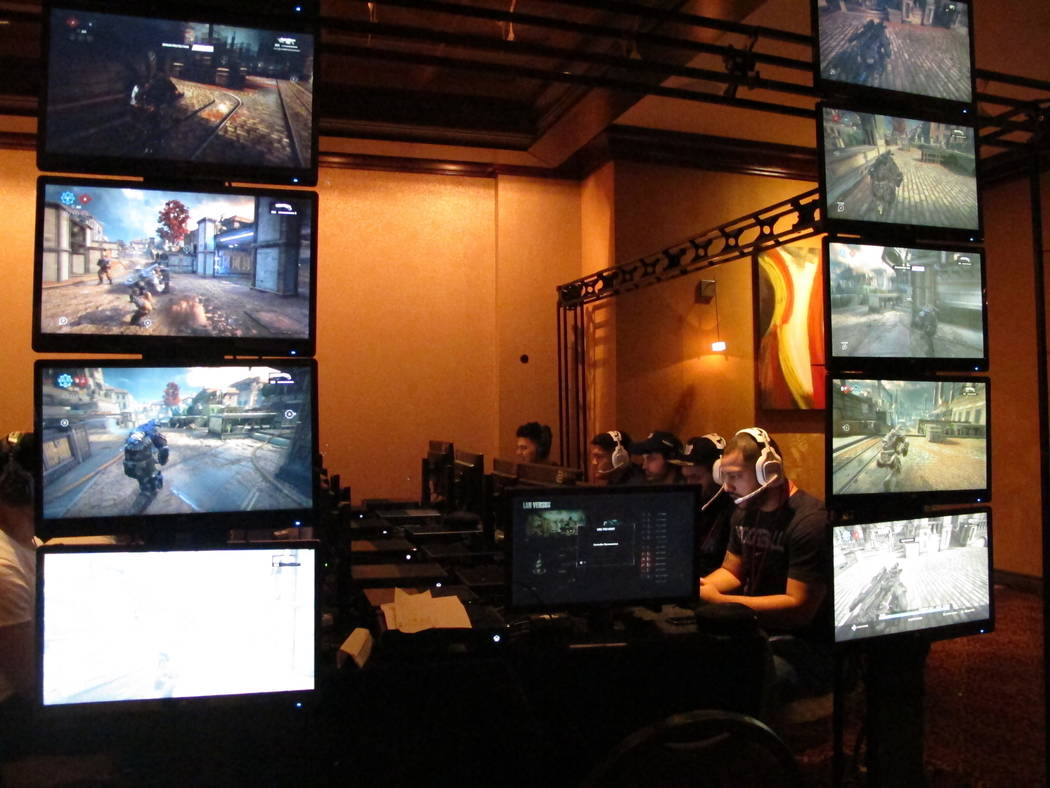Interactive experiences seen as big part of casinos’ futures
ATLANTIC CITY — Getting new customers involved in more interactive experiences is going to be a big part of the future for casinos in the United States and around the world, participants in a major gambling conference predicted Wednesday.
Casino executives, digital experts and payment processors at the conference in Atlantic City agreed casinos need to offer new experiences that directly involve the next generation. This involves new, non-traditional products such as competitive video game contests, skill-based slots, and daily fantasy sports and sports betting in states that allow it.
These would allow casinos to bring in new customers and revenue, the executives and experts said.
“I think all casinos, 10 years from now, will evolve and offer some sort of interactive experiences,” said Seth Schorr, chairman of the Downtown Grand casino in Las Vegas.
His casino has gone in big for eSports, the new name for competitive video game contests.
“Young people now consider video games a sport,” he said. “It’s shocking; it took me a long time to get my head around that. I’m a 40-year-old casino owner who believes in the future of our industry. If I’m not going to take a risk for the future, who is?”
Internet gambling is only offered in three states: New Jersey, by far the largest market; Nevada and Delaware. But other states are considering adding it. On Wednesday, Pennsylvania lawmakers moved a step closer to legalizing online gambling.
A prime opportunity for growth is the expansion of payment processing options for online gambling, said Joe Pappano, senior vice president of the payment processing company Vantiv Entertainment Solutions. Three years ago, when New Jersey offered the first internet bets, credit cards were used for only about 40 percent of transactions involving internet gambling. That figure has now risen to more than 80 percent, he said.
Casinos remain unsure whether daily fantasy sports and sports betting are potential friends or enemies, participants on a panel said.
States across the nation are grappling with how to regulate daily fantasy sports, in which players create a roster of real-life athletes who earn points based on their performances in games.
“Based on public statements from casino executives, there is a desire to see if daily fantasy sports can be added to the mix because of the millennials issue,” said Joseph Brennan, CEO of SportAD, a fantasy sports startup firm.
But, he cautioned, it might be difficult to compete with industry leaders like Draft Kings and Fan Duel “that have spent billions of dollars to establish their brands.”
Brennan said casinos are perfect partners for daily fantasy sports companies because of the existing player databases and the casinos’ knowledge of their customers, their likes and gambling histories.
Sports betting is currently limited to just four states. On Wednesday, Acting U.S. Solicitor General Jeffrey Wall urged the U.S. Supreme Court not to hear New Jersey’s appeal of a lower court decision that invalidated the state’s sports betting plan.
Melissa Price is senior vice president of Caesars Entertainment, which was first in the nation to deploy skill-based slot machines at its Atlantic City casinos. Unlike traditional slot machines, which are solely dependent on luck, the amount of skill an individual player has can influence whether he or she wins.
“Yes, it’s true that there’s less millennials playing slot machines,” she said.
The company removed the 21 machines after six months because they were not generating enough money to cover the vendor fees, she said.
“We all understood that we were learning and experimenting,” she said.
But Price said the company remains committed to the concept and plans to deploy new machines when they are available.
Casinos also have to constantly update their offerings and keep up with their customers’ interests, said Vahe Baloulian, CEO of BetConstruct, which offers sports betting and online gambling software.
“The time will come when we’re saying, ‘This generation is not playing on their mobile phones anymore; they’re playing on something else we don’t know about.’”



















